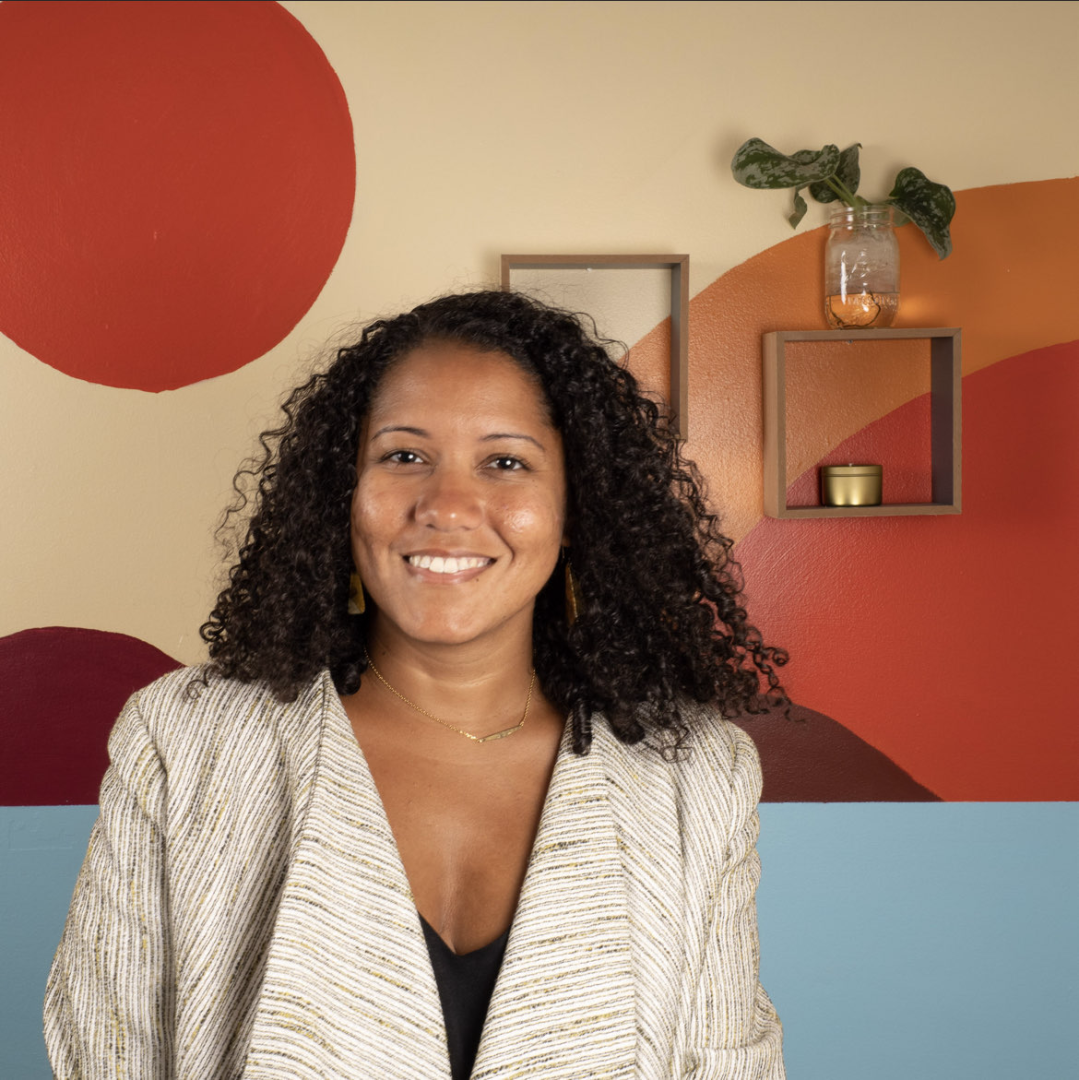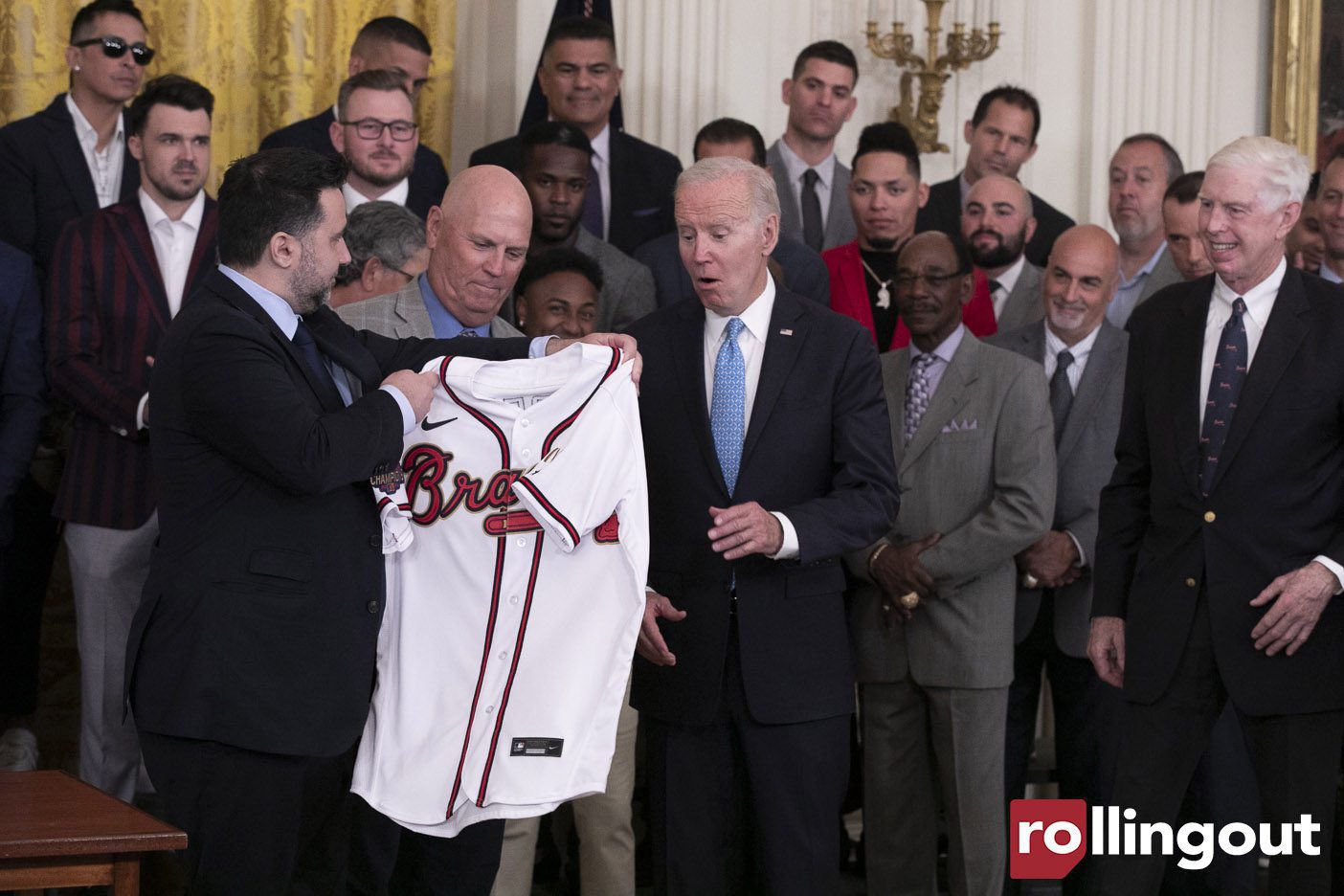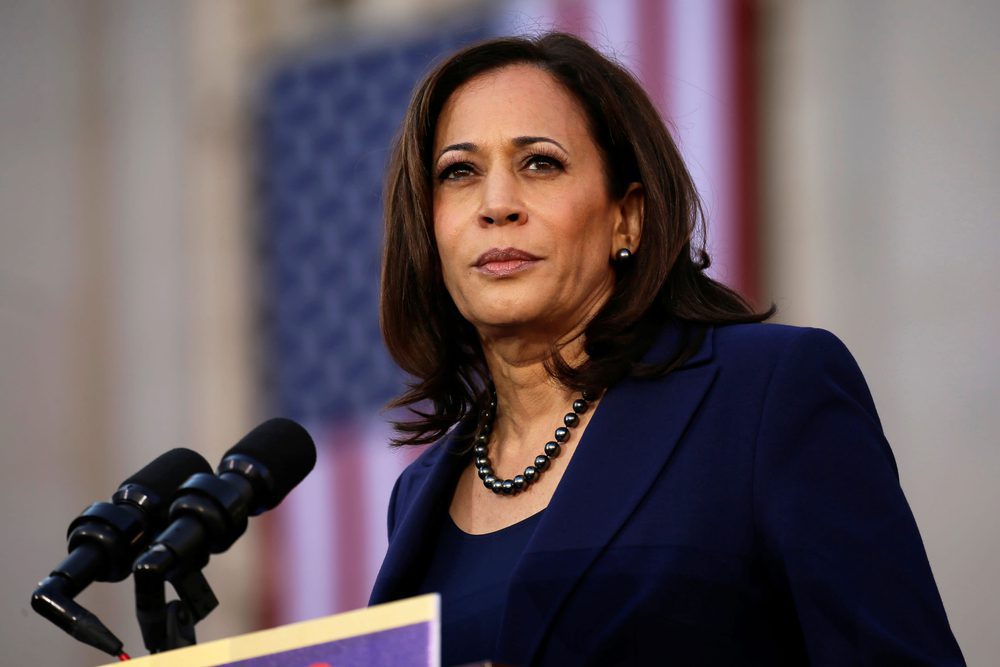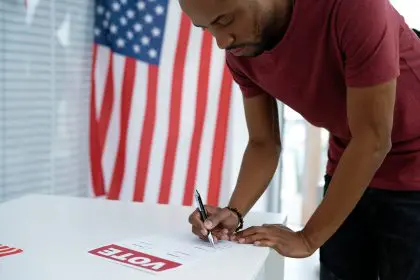Monisha Brown: Hillary, you are one of my superheroes. Your career peaked with Fair Fight when you all delivered Georgia in the 2020 elections. But, you are very transparent in insisting it was a coalition. Let’s talk about the coalition. What does that look like, Hillary?
Hillary Holley: Honestly, I think the coalition work is what makes Georgia special. I say that’s what makes Georgia the best state in the country. We are in communication with each other about everything every single day.
These organizations can be Black Voters Matter, which has such deep roots in our rural areas. A lot of people like to think all the Black people live in Metro Atlanta and that, if you go south, no Black folk live there. In reality, forty percent of Black voters in Georgia live South of Macon. Forty percent of South Georgia is Black, y’all. It’s Black.
I didn’t know that. It’s a fun fact.
Yes. They have built such beautiful relationships with the community because they don’t just go during election cycles. They show up to food banks. They, again, help train people to show up at county commissioner meetings. I like to say the further down the ballot the closer to home. They help them realize where the halls of power are on a super local level.
There are also organizations like the Coalition for the People’s Agenda, which is led by the famous Ms. Helen Butler. I like to say the Queen of Georgia, who has taught me everything I know. I also like to say she is the person who really helps make sure that our poll workers are taken care of. The majority of poll workers in Georgia are elderly Black women.
I love it. Thank you so much for talking about those coalitions because I think people need to know that there is a conglomeration. It is a whole machine. Georgia is, as you mentioned, bigger than just Atlanta and Fulton County. Coming up on these current elections, Hillary, what’s at stake? You’ve touched on it a little bit. Kamala Harris is on the ticket. What is really at stake for Black voters, women and women of color?
So, we know that the number one issue that voters want to be addressed is the economy and what the economy means for everyday folk like you and me. We want to be able to afford to take care of our families. We have a big contrast in the two candidates running for president, Kamala Harris and Trump, on how they imagine supporting the working class.
We have Donald Trump, who believes the way to “invest” in working people, which is not in fact an investment in working people, is by giving corporations and billionaires tax credits in hopes that they will then raise wages, provide benefits and make rent affordable. However, having those tax breaks for billionaires limits the amount of money that our government has to support a single mom trying to feed her kid or making sure that public schools can get adequate funding so teachers don’t have 30 kids in a classroom.
Then, when we look at the policies presented by Kamala Harris. She wants to end the Trump Tax Credit, which is a huge economic policy because if billionaires and corporations start paying their fair share in taxes, we will have more revenue to then make care affordable. We can make a massive multi-billion-dollar investment in childcare. That means we can help provide government support to childcare providers, because we have to think of childcare as a public service. People who cannot afford to have childcare when they go to work literally have to drop out of the workforce. People are choosing to stay at home because it is cheaper to stay at home and not work than it is to go to work.
So, if we have more money, we can invest in childcare providers and also give families some support to be able to afford that care. The same thing with paid leave. The vice president has said, with that additional revenue, we can make a federal paid leave program, which the federal government will make sure that if a woman needs to take off for if she just had a baby, same and a father. I want to talk about fathers, too. The government can help support them by taking two months of paid leave.
Thank you for breaking that down because those are everyday issues that people talk about. I love that you gave an example with gender inclusion. How can people get involved with Care in Action?
Okay, I want to talk to two people, two different folks. One, first I want to talk to the worker. I want to talk to people, the Black woman who has an in-home daycare facility or the Black woman who is a home care worker making $12 an hour taking care of our elders, who also needs to be able to afford childcare and groceries. Please get involved with Care in Action. We also need you to be in the capital with your fellow folks demanding Governor Brian Kemp to invest in you all as workers. We have a $19 billion surplus. We have enough money to raise your wages. If you join our fight, your voice will add to this. You can sign up at www.careinaction.us and sign up to become a member.
If you are not a worker, I bet you’re still taking care of folks. You’re just not getting paid for it, right? So, if you are taking care of a baby, some toddlers, teenagers or have an aging parent that you’re also having to look after, you also probably have a job that you love and you want to keep, I also want you to go to the website and become a member.
We need both voices.
We need the workers to be paid with dignity and respect. We also need women in the halls of power talking to elected officials about these issues and letting them know that if I could afford childcare, I could actually stay at my job and contribute to the economy.
So, please join us. There is room for all women of color, all walks in life because we all are giving care and we also deserve care.
Please click the video box above to view the full article.
For more information on supporting Care in Action, please visit: https://careinaction.us/.












